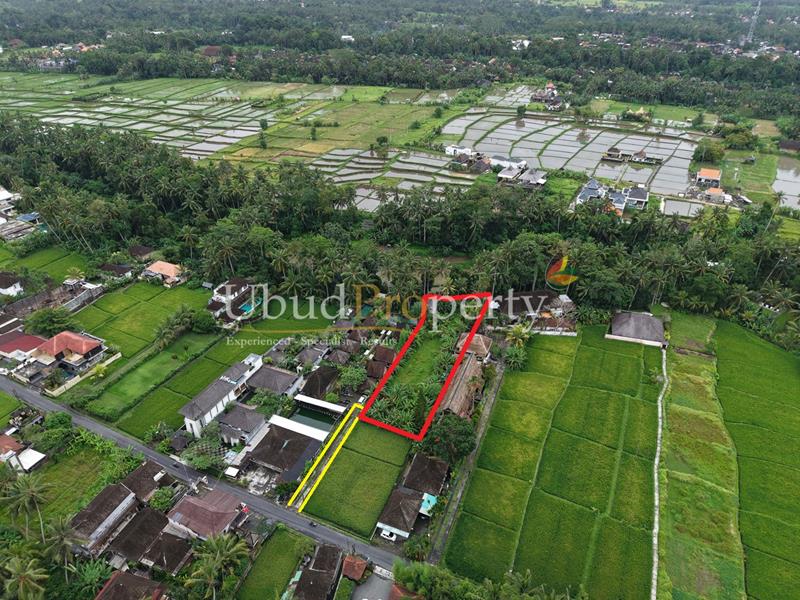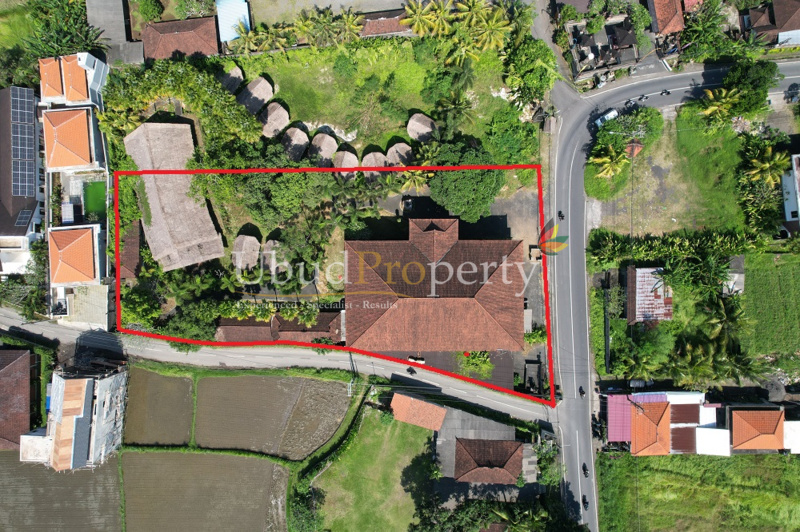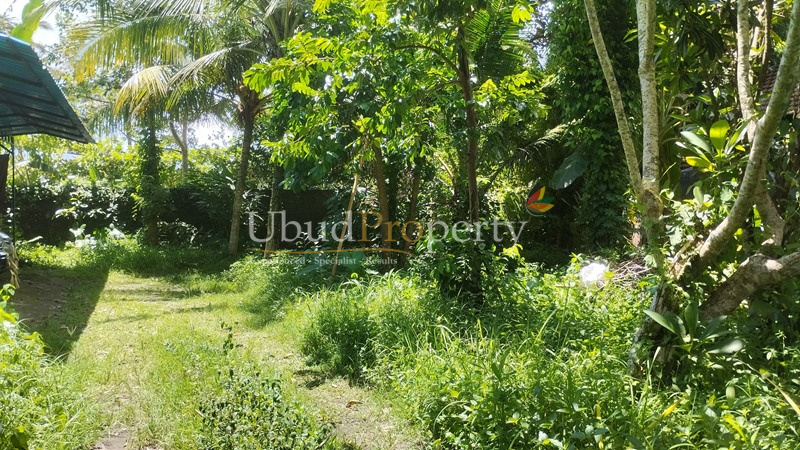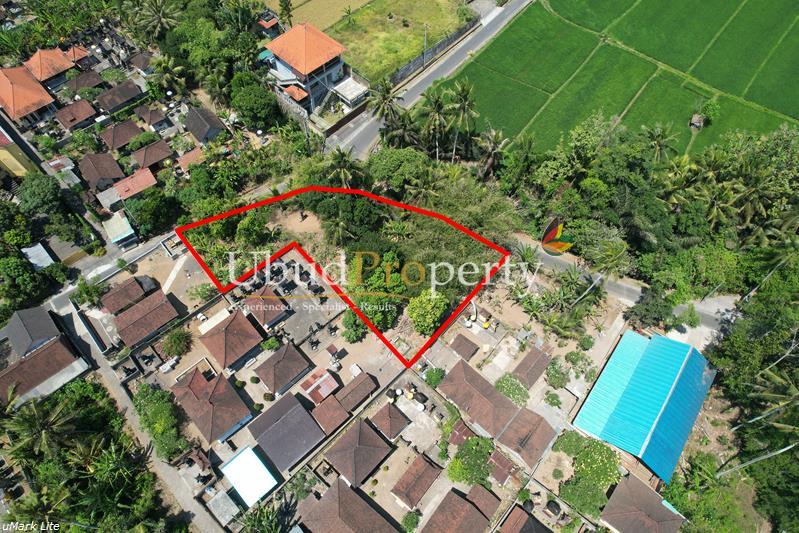The legal side
19 Agustus 2011
UbudProperty
There are a number of things to take into account when buying property in Bali. One could say that buying property in Bali is really not as straightforward as it is in many other countries around the world. There are complex rules and regulations which change regularly and need knowledgeable advice to guide a buyer through the buying process. Below we will go into further detail on a part of the legal situation in Indonesia (and therefore Bali) and provide a basic legal and taxation guide for buying land in Indonesia.
This is just a snippet of the rules involved with buying land. Do not be discouraged, at Ubud Property we have over 10 years of experience with the established laws and (-local- government) regulations involved with real estate. Bali also has a complex community system which can be confusing if you do not have the
right advisors. However, we know what to look at for and what to avoid! With help of our trusted team of legal advisors and notaries we also know how to help clients make informed decisions and how to assist them through process in a safe and secure way.
Basic Legal and Taxation Guide for buying land in Indonesia
You may already know, that outright land ownership via Hak Milik (the right to own) is only available to Indonesian citizen or entities.
For years a widely used practice by Notaries and lawyers has been to give foreign buyers the option to connect with an Indonesian citizen, who is purchasing the property for the foreigner. Then agreements have been set up, which are signed by the local nominee and foreign buyer in order to give the foreigner rights of property usage and control.
In early 2015 the Minister of Agraria who is in charge of the BPN (the Land Department), made a strong statement saying that indirect land ownership or control by foreigners via nominee agreements will have to cease. Property obtained in such way is at risk to be taken back by the state.
Now we have the following options to live on and use properties in Bali:
Firstly, rather than trustfully engaging with Indonesian ‘immediate friends’ and unknown legal operators, - when setting out to purchase Real Estate, read up on the basic information available, such as below and then still seek impartial and competent legal counsel and taxation advice for your transaction.
It is true that some foreigners lost out on their entitlements to their property. This almost always happened due to poor documentation. Compare these exceptions against the vast number of foreign residents who since now enjoy a mutual beneficial contractual agreement for land usage and those, who chose to purchase under a conditional land title, but gives undisputable direct usage rights to the buyer. You will then see that it pays to understand the basic land law.
Within the Group of UbudProperty / Bali Elite Realty / Ubud Royal Realty, you will receive relevant and detailed information, once you proceed towards a purchase. In any case we recommend to verify this information against at least one other specialized professional source.
We are confident to name independent, experienced and qualified legal and taxation professionals, architects and builders. Ask us for contacts to others who went down the same road earlier. Their recommendations should further assist you in understanding your options.
The Procedure
A Land Title Deed, the Sertifikat Tanah, is stating the details of ownership and the precise description and location of the land. It also includes a Survey Certificate with drawing.
This document is the basis for any change of ownership. A Land Deed Official, usually a Notary with the title extension PPAT (Pejabat Pembuat Akta Tanah), will legalize the transaction. Fees, even taxation can be to some extent a matter of negotiation.
Within our group of Property Agencies we are working with the leading Notaries in Bali and also directly with the National Land Agency BPN (Badan Pertanahan National). We are proud of our unblemished record of successful and undisputed property transactions.
Also, - their cost and expenses are controlled by us and are same or better than most. Don’t hesitate to ask us for our opinion on your purchasing plans, - there is no obligation resulting for you.
Depending on your situation and reasons for purchase, you have a range of -
Ownership Options for Foreigners in Indonesia -
A ) Leasehold
Leasehold is the most common form of ownership among foreigners. A lease is achieving a temporary interest in the land only. The lease period is negotiated with the lessor. Commonly all lease payments for the agreed term are to be made upfront. Still, for a lease term of let’s say 35 years, as a rule of thumb you would pay only about half of the money as you would need for purchasing the same block of land.
However, all your improvements on the land revert at the end of the lease term back to the land owner. Excluded are non-fixed improvements, such as ‘knock down’ house constructions.
The lease can be sub-contracted and in the early years of the lease term a financial gain is feasible. Towards the end of the lease term the contract may be difficult, if impossible to sell.
It will be valuable to have a clause in the lease agreement, stating that you have the right to extend the lease agreement once the initial period has expired. It is utmost important to agree on the lease rate for the extension period at the time of the first lease contract being made. Often the average price of three comparable properties available for lease in the same area may become the key to that value. If this is not applicable, the gold price or other standard commodities can be agreed upon to tie the future rate in.
Lease agreements are usually drawn up and legalized by a Notary, but are not registered with the Government Land Agency. However, strict laws are protecting the foreign or national lessee, making a lease a safe arrangement.
The lease contract is subject to 10% PPH taxation. As it is essentially an income tax, it is to be paid by the lessor who often is unaware of this obligation and may want to come back to the lessee when the tax falls due. If the lessor is a Corporation which has to charge PPN (Value added tax) the obligation to pay PPN also stays with the lessor. The Notary and/or accountant will advise on the best way from the outset to keep your best interest in mind.
B) Corporate Ownership via HGB title
A foreigner can set up a Foreign Investment Company (PT PMA). This Company does not need any Indonesian shareholder and is entitled to own land under HGB title. This is a somewhat ‘lesser’ title than outright Freehold Ownership, because the initial freehold title is relinquished to the Government.
It is then replaced against a period of formerly 30 years, with the right to extend by another such period and so on. These periods are presently (2011) under review and may in future extend up to 75 years.
The HGB title allows the land to be used as per the Corporate Activity and to be built upon.
Before setting up such a PT PMA Company, mainly to facilitate property acquisition under the foreigners’ name, it needs to be understood, that the Government is regulating and monitoring such Companies closely.
For example, if after a number of years there are no reasonable tax returns reported, the Company may have to close and your search for ownership options starts again.
The PT PMA regulations require regular reporting of the business’ development and an annual audit by an approved tax consultant. It is strongly recommended to seek detailed legal and taxation advice before deciding to own property via Corporate Ownership.
Taxes on the transfer of Freehold Ownership are determined by the NJOP (Nilai Jual Object Pajak = Government assessed Object value. The rate is 10%, - 5% to be paid by the vendor and the other half (5%) by the buyer. Again, your Notary and /or tax adviser will tell you about your options and can suggest ways how to deal best with your tax liability.
C) Freehold Title ( Hak Milik)
This title is only available to Indonesian Nationals. To enjoy property usage under Hak Milik means you will have to execute a ‘Nominee Agreement’ with the Indonesian Holder of your land to secure your interest.
As said on top, presently (mid 2015) it is unclear if the Indonesian Government indeed is going to take decisive action to prevent future purchases using the Nominee structure.
For the sake of covering all options, let’s discuss what needs to be done to follow this so far by Government practice tolerated but not endorsed form of property acquisition:
Your advantage under this form of land title lies in the fact that you directly participate in the capital appreciation of the land, which makes
You may select your Nominee by appointing a trustworthy Indonesian person, ask your Notary to recommend someone, maybe from his own office, or if you trust your property Agent, you may even chose staff from there. It is worthwhile to search for a younger person with a transparent family background, as inheritance issues regarding every ones rights and duties become part of the Nominee Agreement.
The Nominee Agreement is to be legalized by a Notary.
Because there is no ‘official’ standard text available, it is essential to deal with experienced and proven professionals, who have over time eliminated loopholes and uncertainties in the still widely used older text versions.
The text should be in English a n d Bahasa Indonesia, so that in the event of a legal dispute there cannot be misinterpretation.
The Nominee Agreement should be made up of the following sections:
The statement.
Here it is declared who the intended real owner is and why the Nominee is lending his/her name for the transaction.
The obligations of the nominee are outlined – e.g. payment of taxes and contributions when due, applying for power, water and telephone connections, the building approval, further licenses, if commercial activity is planned, etc.
The nominee usually receives a one off amount at the beginning of the N. Agreement, to compensate for the substantial administrative duties in the first month’ of establishing the new property (average one off payment in recent years = USD 1,000.-). At the end of the Nominee's service, e.g. when the property is sold again, he/she receives a percentage of the sales price (Common are 1 to 2 %).
The Nominee declares to support the foreign owner by signing all consecutive documents as requested and without delay. Failure in doing so attracts a fine, e.g. forfeiting the final payout.
It is also stated that the rights and responsibilities of the agreement are passed on to the respective heirs.
The loan agreement.
The nominee declares to have received the funds for the property purchase as a loan from the foreigner. A valid loan agreement needs to state the amount. This becomes a matter for your special attention, because as the property increases in value the loan amount should be adjusted periodically in an addendum.
The property becomes the collateral owed to the foreigner “with all improvements at the total value and at any point in time”.
Power of Attorney
The nominee gives to the foreigner an irrevocable and transferable Power of Attorney to sell, sublease or otherwise dispose of or deal with the property and declares to represent the foreigner in any dispute regarding the property.
The Nominee will hand over all original titles and documents to the foreign investor.
He agrees that, should the law change to the disadvantage of the foreigner, the agreement automatically becomes a long term lease with all rights of land usage given to the foreigner and should the law change in favor of the foreigner, the nominee co-operates to pass on the ownership titles to the foreigner in accordance with the new law.
No tax is payable on a regular Nominee Agreement, other than the stamp duty fee of a few Rupiah. (Rp 6000.- in 2015).
Exemption: If a lease is taken out as security, 10% PPH taxes become due.
Additional security measures
The foreigner can take out a ‘mortgage’ on the property. This is not a mortgage as understood in western banking practice, but a block applied at the National Land Agency BPN, to the effect that the nominee cannot deal in any way with the property until this ‘mortgage’ is released by the foreigner. This ‘mortgage’ will be entered via a Notary. The fee for this is inexpensive.
No tax is payable on a mortgage.
D) The Right to Use over Freehold Title (Hak Pakai di atas Hak Milik)
A ‘right to use over freehold’ is a certificate which is granted by the National Land Agency BPN over freehold land.
This is giving the most secure way of controlling a property for the foreigner, because the foreigners name is actually stated as title owner in the Hak Pakai Certificate.
However, land taxation will apply to both, the underlying Freehold Title (Hak Milik) a n d the Right to Use (Hak Pakai) title, which is covering the freehold title. Taxes upon obtaining the Hak Pakai title are assessed according to the Government appointed Land Value NJOP (Nilai Jual Objek Pajak), which is considerably less than the actual market value. The Hak Pakai is granted for an initial 25 years, and will then be extended by two more consecutive terms to up to 70 years. At present the law is silent about following terms.
The above is not intended to replace advice from legal and taxation professionals.
Please chose your advisers carefully and double check all information obtained.
©PTUbudProperty
Pdf version
FEATURE LISTINGS
U.660

- 1,295 Sqm
Tanah 12.95 Are di Dekat Pusat Ubud – Pemandangan Sawah, Hutan, & Sungai More Detail
IDR 9.712.500.000S.195

- 2,490 Sqm
This land with building really suits a café or luxurious villa in this strategic area More Detail
IDR 9.586.500.000
